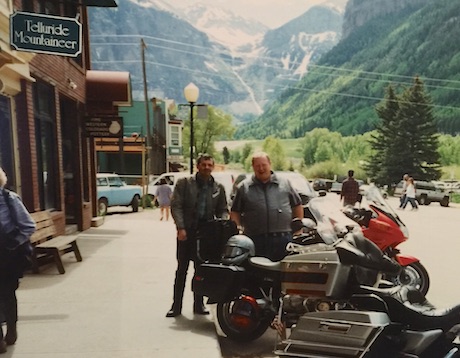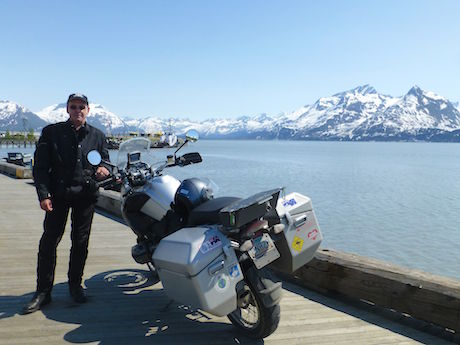Many riders take risks thinking “it couldn’t happen to me”, but those who have crashed have wiser heads and a different view of this common myth.
World traveller and motorcycle travel guide Peter Colwell tells this harrowing tale of a ride 10 years ago near Omeo in Victoria with a visiting Canadian friend, John, that is a salutary lesson for us all these Easter holidays.

Shortly after leaving Omeo I passed a truck. I continued on but John did not follow.
Eventually I turned back, – to find the truck parked and a sombre driver telling me “It’s not good back there”.
My very good friend with whom I had travelled in many countries, was dead. He had side-swiped a bike and left the road in to a ditch. He died instantly.
The remains of my bike, that John was riding, were scattered all over the road. I remember picking up the speedo and then throwing it away.
I was on my own, a thousand kilometres from home.
After the helicopter came and took away the other injured rider, and the ambulance came to pick up John’s body, I then had to ride the long 1000km home.
But first I had to ride back to Omeo, which was the hardest ride of my life.
I had to phone John’s family in Canada because when a foreigner is killed in Australia, the police cannot phone the relatives at home. They can only advise the Embassy who contact relatives. So in this case it was up to me to convey the news.
Then I had to deal with all the formalities of sending his body home. The police effectively appointed me his next-of-kin for this purpose.
John was a wonderfully generous man, who effectively introduced me to the wonders of touring North America.
There is sometimes an assumption by the Highway Patrol, that they are the only guys who actually deal with death and its aftermath on the highway. Not so, this experience for me was traumatic and still haunts me 10 years on.
Getting back on my bike, alone, two hours after John’s death will live with me forever.
However, it did not diminish my riding enthusiasm in any way, and I have also dealt with a few serious accidents on New Zealand tours.
I have also since ridden in many countries and still enjoy riding immensely.
But woe betide anyone who lectures me about road safety with a pointed finger or says “it couldn’t happen to me”.
What lessons have you learnt from a crash? Leave your comments in the “Leave a reply” section below.


